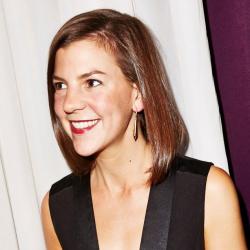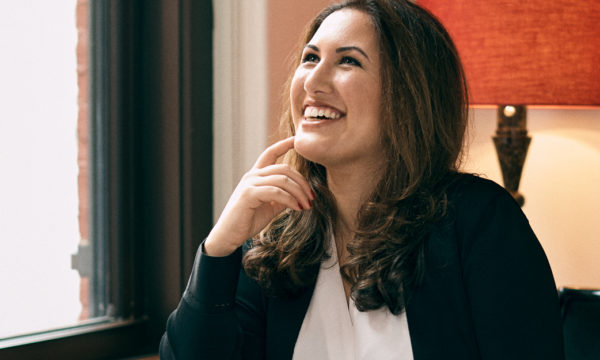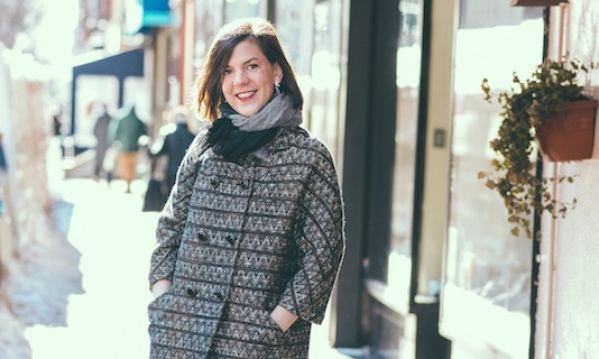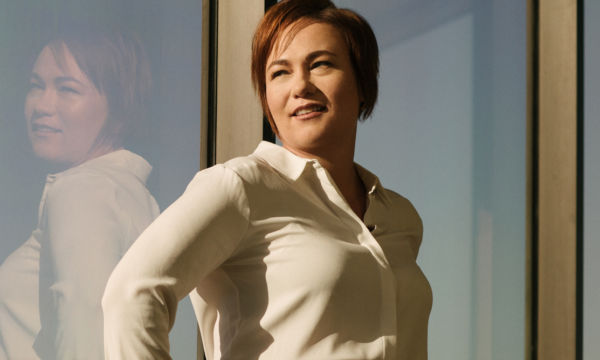Ana Bermudez, Commissioner of NYC’s Department of Probation, Separates the Deed From the Doer
December 21, 2017 | Filed in: Woman of the Week
Born and raised in Puerto Rico, Ana Bermudez has been an advocate for young people ever since she graduated from Yale Law School. In 2014, she became the first Latina (and second woman) to ever serve as New York City’s Commissioner of the Department of Probation. Over the past three years, she has worked to humanize the probation process—as she puts it, “separating the deed from the doer.” We recently visited her downtown office to talk about second chances, feeling “ungraceful,” and confronting stereotypes about sexuality and ethnicity.
MY MOTHER WAS VERY INFLUENTIAL in fostering my passion for social justice. Originally, I thought I was going to be a doctor and work in public health. Then I ended up in law school, because it encompassed more of my interests. I always liked working with teenagers, so I ended up in the child advocacy field for about five years. During that time, I realized that, in the context of children accused of crimes, there was a real problem in setting up the system as black and white, yes versus no, guilt versus innocence. It didn’t work for me, assigning blame and looking for absolute truth. I always thought that when someone gets arrested so young, it should be a learning opportunity rather than a condemnation. For a lot of young people going through the system, it’s a life-stopper as opposed to a chance to reflect, change course, and figure out what you really want in life.
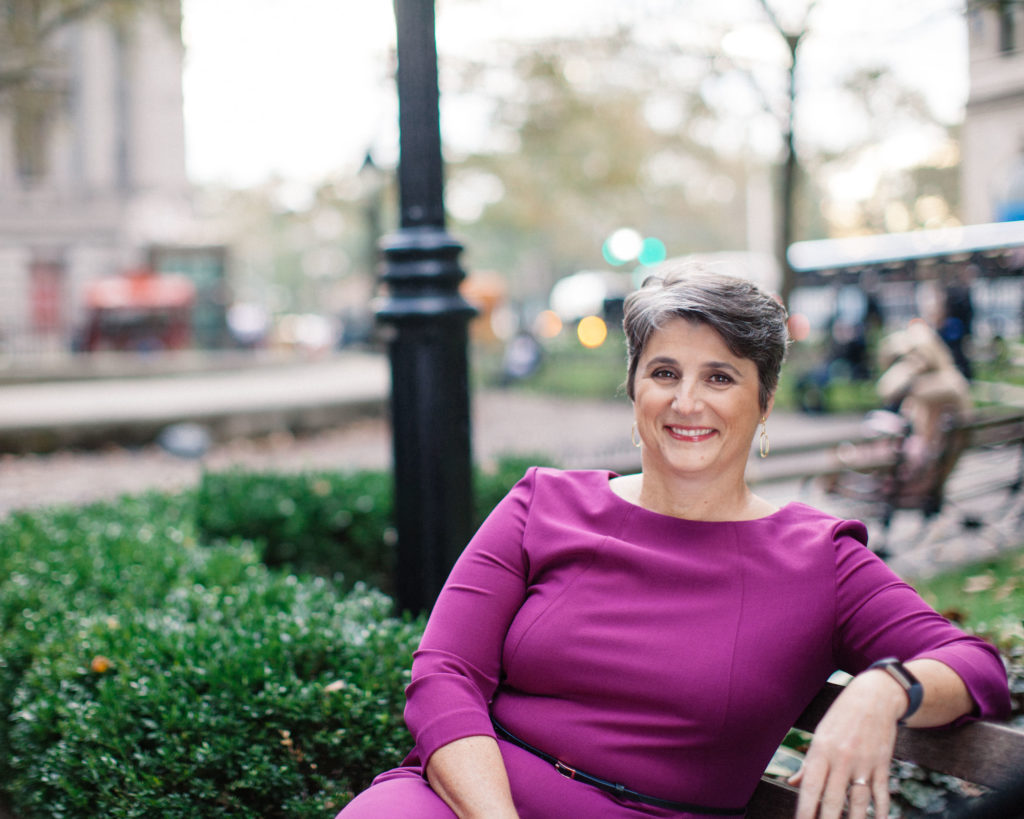
Ana wears the Etsuko dress in deep plum and the Elara earrings.
I HAD A COMFORTABLE CHILDHOOD in the suburbs of San Juan, in Puerto Rico. My mother was very involved in our community, and she encouraged us to be as well. When I was in high school, I tutored children and teenagers who lived in one of the barrios near our house, some of whom had gotten in trouble with the law. I saw the impact, whether it was them or their relatives who got involved in the system, and what a detriment it was to the family and to their communities.
AFTER I WORKED AT LEGAL AID, I got a job at a nonprofit called the Center for Alternative Sentencing and Employment Services [CASES]. That’s where I learned to become a supervisor. I developed a philosophy that, as a boss, I’m responsible for getting the people who work for me to a better place, professionally, by the time they leave. In a way, I approach my job as a teacher—not in the sense of knowing everything and imparting it to you, but in the sense that we never stop learning, and we should want to be sponging from others all the time.
FOSTERING OPENNESS can be a double-edged sword, in that you can be perceived as not strong or confident enough, and then people will try to walk all over you if you don’t set boundaries. If somebody does not respect my authority, it’s important to pull that person aside and have a private conversation. Say, “What happened there?” and force a debrief of the situation, as uncomfortable as that is. If someone is disrespectful in front of a larger group, I’ll shut down the conversation and say, “Okay, this is not productive right now. Let’s move on.” Then afterwards, I’ll say, “This is how I experienced your comment, and that’s not okay with me,” and see where the other person’s coming from. A lot of times people react to me in a way that may or may not be about gender, being a Latina, being a lesbian, or whatever, but sometimes it is. We have to be very careful about assuming people’s motivations.
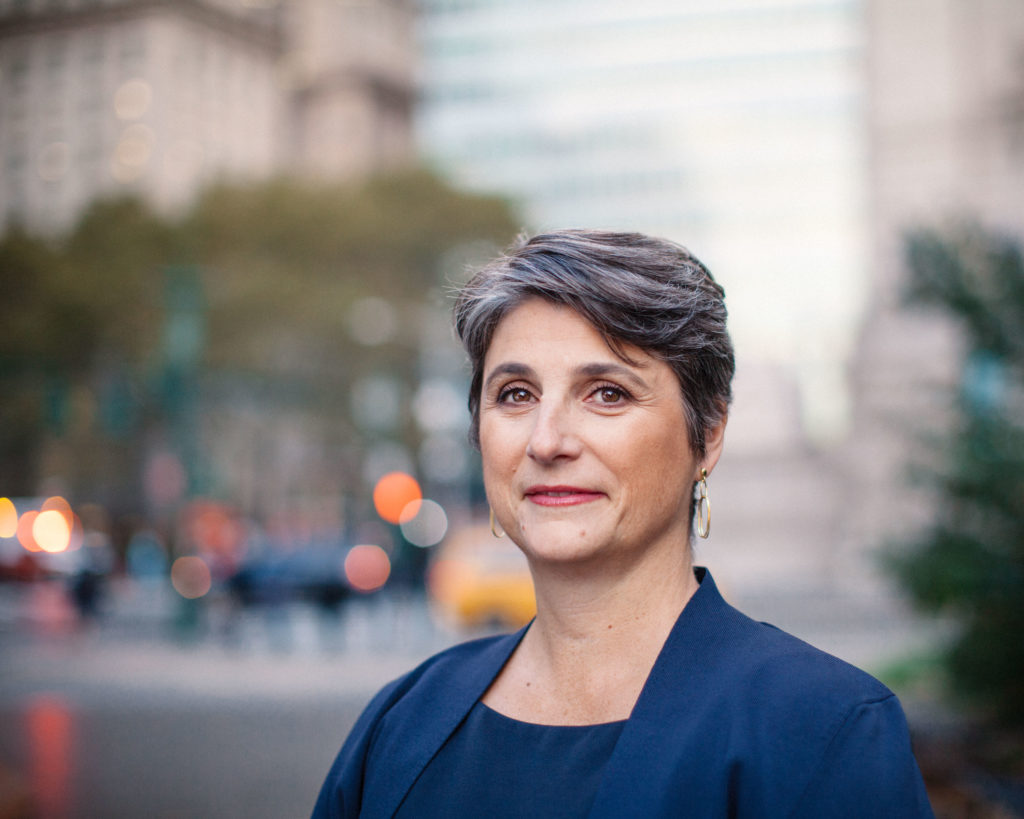
Ana wears the Lydia dress in galaxy blue, the Sant Ambroeus jardigan in galaxy blue, and the Elara earrings.
SOMETIMES I CAN BE A LITTLE OBLIVIOUS about being the only minority in the room. Being Latina, and a lesbian, and a woman, I’m a composite of all those intersections. However, I’m also very light skinned, and people don’t always remember that I am Latina. If I had a dollar for every time somebody said, “You don’t look Puerto Rican. You don’t sound Puerto Rican. Really? You’re Puerto Rican?” I’d be rich. In some cases, it’s created enormous advantages for me—not that that’s a good thing. Still, whenever I walk into a situation, my brain does a quick assessment, to see how I’m going to assert myself and facilitate connections without denying my identity and reality.
I JOINED THE NEW YORK CITY DEPARTMENT OF PROBATION in 2010 as the deputy for juvenile operations. Our team started the process of what I would describe as giving clients a voice, and making sure that we never forgot their humanity. They’re people just like us, and could be our cousins, our daughters, our sons. I believe that there’s a way of keeping people on the “straight and narrow” by having a balance of support and opportunities, as well as high expectations and structure. We believe that people should be in a better place after completing probation than when they started, and it’s our responsibility to make sure that happens.
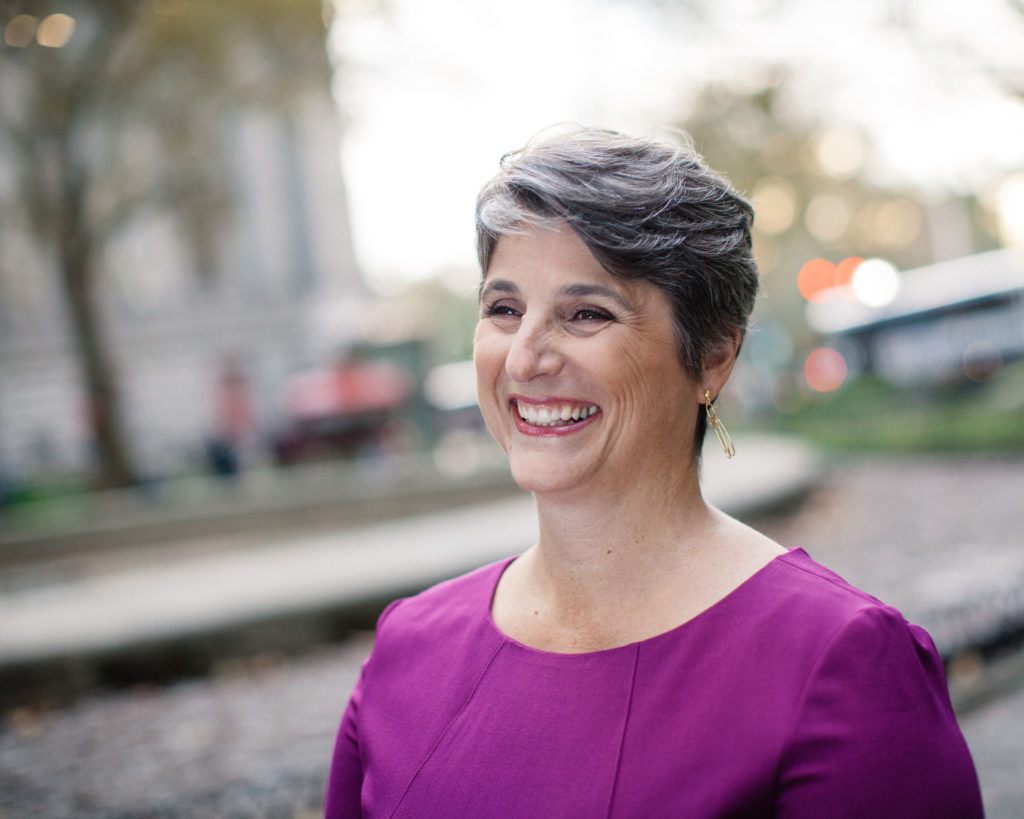
Ana wears the Etsuko dress in deep plum and the Elara earrings.
MY PHILOSOPHIES ABOUT JUSTICE are questioned all the time. That’s why it’s important to balance saying, “We believe in you, and we know you can do this,” with “We can’t let you do stuff that’s going to harm the public, or harm society, and that is non-negotiable.” You’re conveying the message that harming other people or society is not acceptable, while separating the deed from the doer. The deed is not okay, but what we judge is your behavior, not you as a human being. That creates better results, and we have data that shows that this approach has a more lasting effect.
MY COMBINATION OF FEARLESSNESS and obliviousness keeps me from falling prey to too much doubt. I’m always willing to try a new way of doing something, as long as it has research backing it. When people see that I’m willing to take certain risks, it helps them understand that mistakes can be made. You’ve just got to be present, and thinking through what you’re doing, and how you’re doing it, and ultimately have a lot of passion. It goes back to that teacher mindset, having passion.
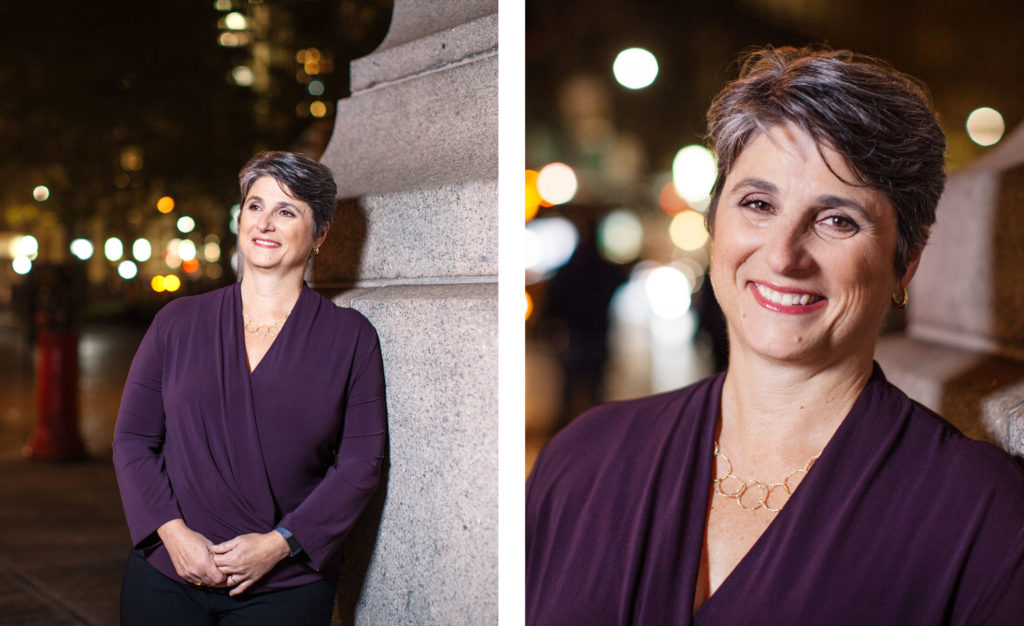
Ana wears the Deneuve 3.0 top in blackberry, the Foster pant in black, the Helene necklace, and the Juno earrings.
I’VE HAD A VERY CONFLICTED RELATIONSHIP with fashion and what I like to wear. When I was growing up in Puerto Rico, my grandmother was very critical of women who were not “graceful.” Meanwhile, I was gender nonconforming, and my grandmother was on my case all the time about my clothes and how I carried myself. The result was that I thought of myself as an ungraceful person, and that can stay in your head for life. I would try on a dress and think, “Oh my god, I look like I’m in drag.” I absorbed society’s expectations around body and image for a very long time. I would think, “If I lose weight then maybe I can wear a dress.” A lot of that changed when I discovered the podcast Food Psych, which is about creating a positive relationship with food and body image.
IN TERMS OF STYLE, MM.LaFleur has helped me enormously. I first came across your clothes on Facebook. A friend had posted, “These are dresses I can wear. They have power. They’re body-hugging without making you look like you’re strapped into something.” I looked at them, and I was like, “This is it. That’s for me.”
I LOVE TO COOK and I like to be active. I used to run, but I can’t anymore, so now I’m becoming a biker. I set a rule that on Friday afternoon and all of Saturday, I try not to touch work. It’s almost impossible, because I think about work a lot, but I try. Generally on Friday nights I go out to dinner or to a movie, and I cook during the week. I never thought that cooking could be a substitute for running, but it is. I’ll get home late sometimes, and my kids are like, “You’re going to cook something? It’s so late!” But it still gives you that sense of relaxation and creation. It just feels really good. My kids are like Top Chef critics, and it’s fun. On Sundays, I love to watch football. It’s contrary to so many things that I believe in, but hey, what the hell, we’re all full of contradictions.
Are you also in search of a power dress? We’ve got you—shop dresses here.
Photographs by Rich Gilligan.






